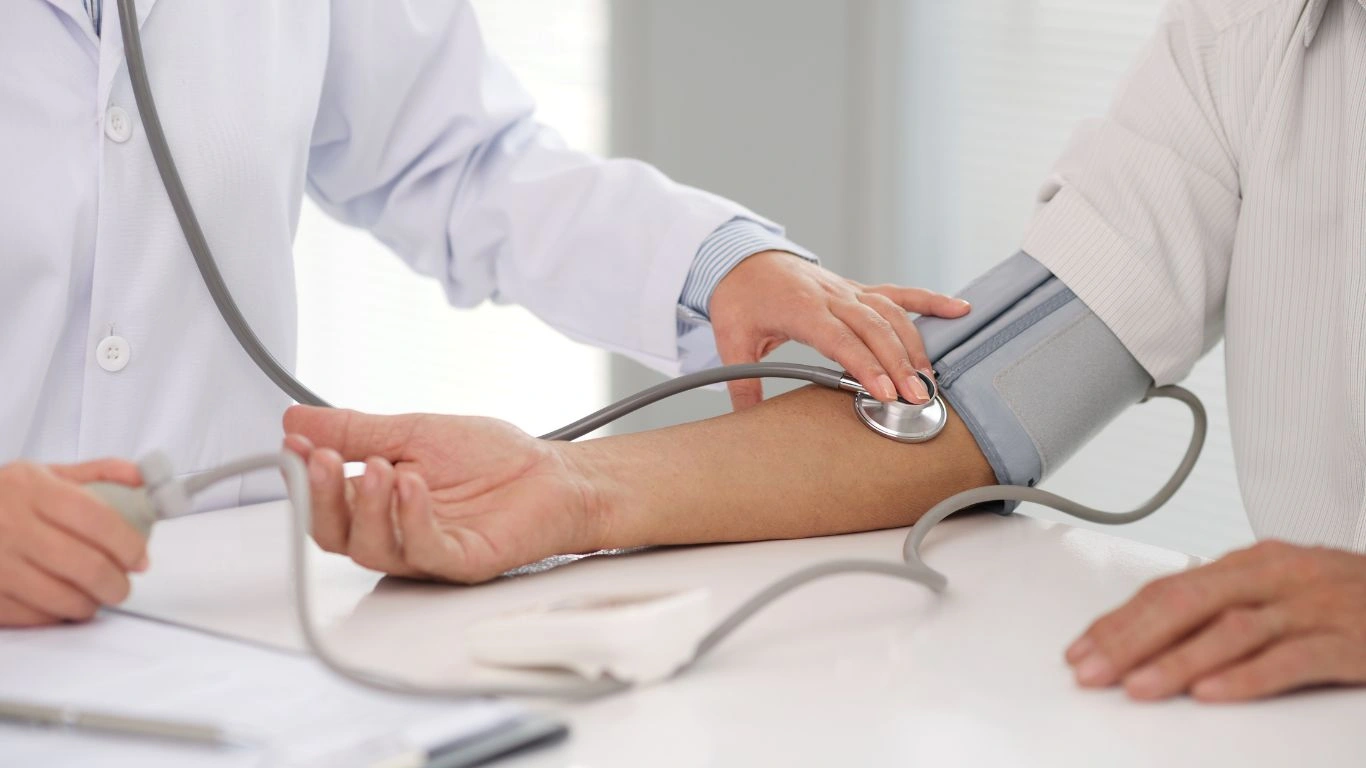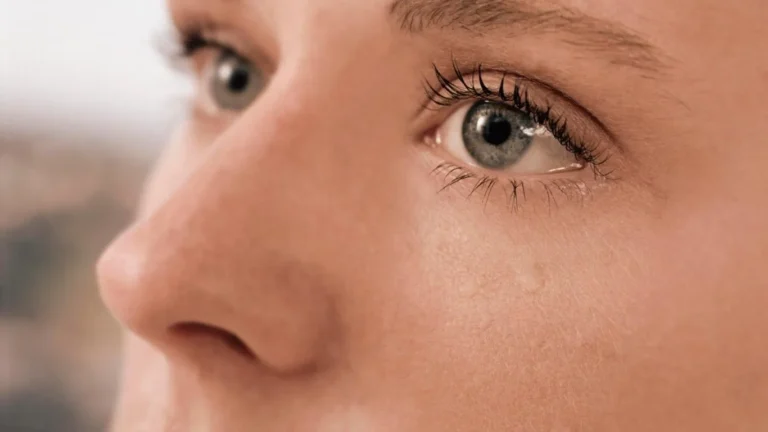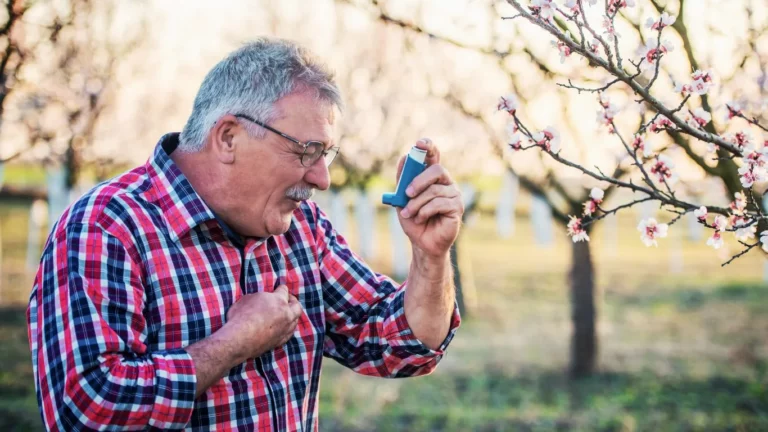Blood Pressure Changes During Hot Flashes: What Every Woman Must Know
Let’s be real — hot flashes are already annoying enough without your blood pressure deciding to join the rollercoaster. But yes, blood pressure changes during hot flashes are absolutely a thing, and as someone who’s worked in internal medicine focusing on hypertension management for years, I’ve seen just how confusing (and honestly, frustrating) it can be for patients. One minute, you’re fine. The next? Sweating, flushed, heart racing — and your blood pressure? All over the place. In this article, we’re going to unpack what’s really going on during those sudden heat waves, why your blood pressure may spike (or dip), and what you can do to manage it without losing your mind.
What’s Actually Happening During a Hot Flash?

That Sudden Inferno Isn’t Just in Your Head
If you’ve ever felt like someone lit a fire inside your body and forgot to tell you, you’re definitely not alone. Hot flashes are usually tied to hormonal changes — especially dropping estrogen levels during perimenopause and menopause. Estrogen helps regulate your body temperature and keeps blood vessels flexible. When it drops, your brain kind of panics and sends signals to dilate blood vessels rapidly, trying to release heat.
And here’s the kicker — when your blood vessels suddenly widen (vasodilation), your blood pressure can drop temporarily. But that’s not the whole story. Your body notices that drop, freaks out a little, and tells your heart to beat faster to compensate. Cue the racing pulse, sweating, and — for some people — a rebound increase in blood pressure right after the flash ends.
Real Talk From the Exam Room
I’ve had patients tell me they feel like they’re having mini heart attacks during hot flashes. And I get it. One woman told me she would literally wake up drenched, heart pounding, feeling like she’d run a marathon. We monitored her blood pressure over 24 hours — sure enough, her readings spiked shortly after every hot flash. But here’s the thing: not everyone responds the same. Some women experience drops, others spikes, and some fluctuate both ways.
Why Blood Pressure Changes During Hot Flashes

The Hormonal Link
Estrogen is like the conductor of your vascular orchestra. When it disappears, everything goes a bit out of tune. Without enough estrogen, blood vessels lose their elasticity, and your autonomic nervous system (the one that controls things like heart rate and blood pressure) goes into overdrive. That can lead to unpredictable blood pressure changes during hot flashes — up, down, or both in quick succession.
Stress and the Sympathetic Nervous System
Here’s another layer: stress. Hot flashes, especially the unexpected and intense ones, trigger anxiety for many women. That activates the sympathetic nervous system — your fight-or-flight mode — which can cause a significant increase in blood pressure. Even women with previously well-controlled hypertension can see sudden surges during these episodes.
Let’s Talk About the Numbers
- Normal blood pressure: under 120/80 mmHg
- During a hot flash: some women report temporary spikes of 140/90 or higher
- Others might experience drops below 100/60, leading to dizziness or lightheadedness
Again, it’s not the same for everyone, but it’s important to recognize your pattern. That’s why I often recommend home blood pressure monitoring, especially for patients in midlife navigating perimenopause. It helps connect the dots between symptoms and readings.
Other Contributing Factors You Might Be Overlooking

Medications, Caffeine, and Even That Glass of Wine
It’s not just hormones at play. Some common triggers can amplify blood pressure shifts during a hot flash:
- Caffeine – stimulates the nervous system, may worsen symptoms
- Alcohol – causes vasodilation, which can lead to both hot flashes and blood pressure drops (then spikes!)
- Antidepressants – particularly SNRIs, sometimes used for hot flashes, may also affect blood pressure
- Decongestants – over-the-counter cold meds that can raise BP
What I Tell My Patients
Track your triggers. Seriously. Keep a little log for a week. Time of day, symptoms, food, drinks, medications — all of it. You’d be surprised how much clarity you get just by noticing patterns. One of my patients realized her worst episodes happened right after her evening glass of red wine. She cut it back, and the change was dramatic — not just in how she felt, but in her BP numbers too.
How to Tell if Blood Pressure Changes During Hot Flashes Are a Problem

Normal vs. Concerning Fluctuations
Okay, so let’s be clear — not every blood pressure change during a hot flash means something serious is going on. In fact, mild fluctuations are pretty common and often harmless. The body is just trying to adjust to those sudden hormonal shifts. But how do you know when it’s crossing the line into something worth a deeper look?
Here’s what I tell my patients in the clinic: if your systolic blood pressure (that top number) is consistently jumping 20–30 mmHg during or after hot flashes, or if you’re feeling symptoms like chest tightness, vision changes, or prolonged dizziness, it’s time to pay attention.
Signs It Might Be More Than Just a Hot Flash
- BP readings above 160/100 mmHg regularly during episodes
- Heart palpitations that last longer than a few minutes
- Shortness of breath, fatigue, or chest pain
- Feeling faint or actually passing out (this one’s a red flag!)
One of my longtime patients started having these weird spells where she’d feel overheated, lightheaded, then completely wiped out. We ruled out cardiac issues and discovered her blood pressure was dipping too low post-hot flash, then bouncing way high a half hour later. Once we figured that out, we could tweak her meds and her symptoms became so much more manageable.
Smart Monitoring: Staying Ahead of the Fluctuations

Why I Recommend Home BP Tracking During Menopause
I can’t stress this enough — if you’re navigating perimenopause or menopause and noticing odd patterns, home monitoring can be a total game-changer. You don’t need anything fancy. A basic digital arm cuff with memory storage will do just fine. And don’t obsess over every single reading. What matters is the trend over time.
I usually advise patients to measure twice a day — once in the morning, once in the evening — and jot down notes about symptoms like hot flashes, stress levels, meals, or poor sleep. After a week, you’ll start to see how blood pressure changes during hot flashes fit into the bigger picture.
Tips for Accurate Readings
- Take it at the same time each day
- Sit quietly for 5 minutes before checking
- No caffeine, exercise, or smoking 30 minutes prior
- Use the same arm each time
- Keep your feet flat, back supported, and arm level with your heart
Honestly, just teaching someone to do this right can eliminate a ton of anxiety. I once had a patient who thought she was hypertensive because of random high readings at the pharmacy. Turns out, she was checking after speed-walking through the store — mystery solved.
Lifestyle Adjustments That Can Actually Help

Small Tweaks, Big Impact
Let’s talk real life. Most women I see are juggling jobs, families, aging parents — and their own bodies are suddenly rebelling. So, no, I’m not going to tell you to overhaul your entire life. But a few small, smart tweaks can go a long way in smoothing out those blood pressure swings.
- Hydration: Sounds basic, but dehydration makes both hot flashes and blood pressure worse. Aim for 8–10 cups of water daily, more if you’re sweating a lot.
- Magnesium: I love this one. Magnesium helps relax blood vessels, eases anxiety, and some studies even suggest it may reduce the intensity of hot flashes. A lot of women are deficient and don’t know it.
- Limit alcohol and caffeine: These two are sneaky triggers. Try cutting back for a week and see how your symptoms respond — many of my patients notice a huge difference.
- Stress reduction: I know, easier said than done. But even 5–10 minutes a day of deep breathing, guided meditation, or just stepping outside alone can calm your nervous system and blunt that BP spike.
My Go-To Relaxation Routine
Personally, I like a combo of chamomile tea, legs-up-the-wall pose (yoga people know what I’m talking about), and five deep belly breaths. Takes 10 minutes tops. It’s not a cure-all, but it does help bring my own blood pressure down after a crazy clinic day. Worth a try!
When to Talk to Your Doctor About Medication Adjustments
Hot Flashes May Mean It’s Time to Reevaluate
If you’re already on BP meds and suddenly going through menopause, your needs might change. Hormonal shifts can either heighten your response to medications or make them less effective. I’ve seen patients who were stable for years suddenly start feeling dizzy or exhausted after starting perimenopause — their meds were simply too strong for the new dynamics.
On the flip side, if you’re seeing persistent blood pressure increases during hot flashes and lifestyle tweaks aren’t cutting it, a med adjustment might be exactly what you need. There’s no one-size-fits-all here — it’s all about balance, and that’s where a collaborative approach with your doctor makes a huge difference.
When I work with my patients, we tailor things based on their personal trends, symptom journals, and daily life. It’s not about chasing numbers; it’s about feeling better and staying safe. You deserve both.
Natural Remedies for Blood Pressure Changes During Hot Flashes

What Actually Works — and What’s Just Hype?
Let’s be honest — there’s no shortage of “miracle” menopause supplements out there. I can’t count how many times a patient has walked into my office clutching a bottle of something with soy isoflavones or black cohosh, asking if it’s going to fix everything. I love the enthusiasm, but here’s my take: some of these can be helpful, but don’t expect overnight magic.
Here’s a quick rundown of the ones I’ve seen work reasonably well for some women when it comes to calming hot flashes and helping stabilize blood pressure:
- Magnesium glycinate: Helps with muscle relaxation, calms the nervous system, and may reduce both anxiety and BP spikes.
- Omega-3s: From fish oil or flaxseed — good for cardiovascular health and may help reduce inflammation-related BP issues.
- Adaptogens like ashwagandha: These herbs can support adrenal function and reduce the stress response, which indirectly keeps BP in check during hot flash episodes.
- Valerian root or passionflower: Natural calming agents that can promote better sleep and reduce evening blood pressure surges.
Always talk with your healthcare provider (yep, shameless plug from me as your friendly Internal Medicine doc) before diving into supplements, especially if you’re on medications — some interactions can get tricky.
The Role of Diet in Blood Pressure Control
Oh, food — both friend and foe. The way you eat can play a massive role in managing blood pressure changes during hot flashes. Here’s what I suggest to my patients trying to balance their hormones and their BP at the same time:
- Prioritize potassium-rich foods: Think bananas, avocados, sweet potatoes, and leafy greens — they help counteract sodium and ease blood vessel tension.
- Cut back on processed salt: You don’t have to toss out the salt shaker, but ditching packaged, high-sodium snacks makes a real difference.
- Add phytoestrogens: Foods like soy, chickpeas, and flaxseeds contain plant-based estrogen-like compounds that may help regulate those hormonal dips.
- Stay steady with blood sugar: Big glucose swings can trigger adrenaline and cortisol, which = blood pressure spikes. Focus on whole foods, balanced meals, and avoiding those crash-and-burn carb snacks.
Sleep, Hot Flashes, and Blood Pressure: The Sleepless Cycle

Night Sweats Aren’t Just Annoying — They Affect Your Heart
If you’re waking up in a puddle of sweat with your heart racing and brain fog the next day, welcome to the club — and I say that with total empathy. It’s more than just a sleep disruption. Poor sleep quality, especially fragmented sleep from hot flashes, increases cortisol levels. And cortisol, our good old stress hormone, can push blood pressure higher over time.
I had one patient, let’s call her Maria, who swore she’d never had a problem with her BP until her sleep started falling apart. We ran some nighttime BP monitoring and found she was spiking in her sleep — classic “non-dipper” hypertension pattern. Once we got her sleep hygiene in order and adjusted her meds, those nighttime numbers started leveling out.
How to Improve Sleep When Hot Flashes Are Wreaking Havoc
- Cool bedroom: Keep it 65–68°F. Cooling pillows and moisture-wicking sheets are game-changers.
- No late-night wine: It messes with thermoregulation and sleep cycles (sorry, I know).
- Routine is key: Go to bed and wake up at the same time, even on weekends. Your body loves rhythm.
- Try gentle yoga or meditation before bed: It reduces sympathetic nervous system activity and encourages deeper sleep.
Honestly, even just dimming the lights 30 minutes before bed and cutting off phone time helps. Your brain needs a heads-up that sleep is coming.
The Emotional Toll of These Swings Is Real

This Isn’t “Just in Your Head”
I see it all the time — smart, capable women who are told by others (and sometimes even other providers) that what they’re experiencing is “normal,” or worse, “in their head.” That makes me want to flip a table. Yes, hot flashes are common. But that doesn’t mean the BP changes, sleep loss, mood shifts, and stress they bring are any less real.
One of the most validating things I hear from my patients is how relieved they are to be taken seriously. You deserve that. These symptoms aren’t just “women’s issues” — they have cardiovascular implications, mental health impacts, and long-term ripple effects.
What Helps Mentally and Emotionally
Here are some tools my patients have found genuinely helpful — and I’ve used a few myself during rough patches:
- Support groups: Whether online or in person, talking to other women going through the same thing is powerful.
- Therapy: Cognitive-behavioral therapy (CBT) has been shown to help with both anxiety and physical menopause symptoms.
- Journaling: Even just 5 minutes a day. It helps track patterns and releases the mental load.
Remember, managing blood pressure changes during hot flashes isn’t just about numbers on a screen. It’s about your quality of life, your confidence, your relationships — all of it. This phase can feel overwhelming, but it’s also an opportunity to reconnect with your body in a new way.

Dr. Gwenna Aazee is a board-certified Internal Medicine Physician with a special focus on hypertension management, chronic disease prevention, and patient education. With years of experience in both clinical practice and medical writing, she’s passionate about turning evidence-based medicine into accessible, actionable advice. Through her work at Healthusias.com, Dr. Aazee empowers readers to take charge of their health with confidence and clarity. Off the clock, she enjoys deep dives into nutrition research, long walks with her rescue pup, and simplifying medical jargon one article at a time.






